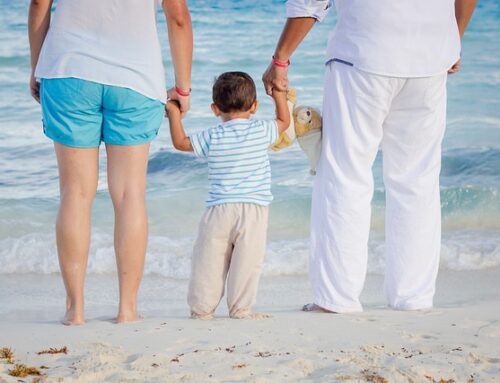Safety Travel Tips for International Travel

Tips for Travelling Internationally and Staying Safe
Traveling is one of the most popular pastimes for most adults. The psychological benefits it provides are incomparable. But traveling requires planning and preparations to ensure a trouble-free journey. Be it your first or tenth time traveling, the following tips for safe international travel will always come in handy.
Check Health Insurance
This is the first and foremost tip that you need to seriously consider. It is highly important to check your insurance validity in the region you will be travel to with your insurance carrier. It is also wise to inform your regular doctor about your travel plans in case there are any medical considerations to be dealt with in advance of your journey. You need to ensure that your insurance is applicable overseas and that the prescriptions and vaccinations are all renewed. This is even more important if you are someone who is diabetic or a heart patient.
If by any chance you feel that the insurance carrier would not cover you internationally then it is always advisable to obtain extra coverage just in case of illness or injury during your trip.
Bring Passport Copies
This is pretty obvious and requires common sense. You must keep copies of your passport with you just in case your original gets misplaced or stolen in a foreign country. A copy or your original passport will be essential to prove your identity and citizenship and get a new passport from the local Embassy.
Securing Your Valuables
This comes as a very important security measure both while traveling to your destination and then once you arrive at the place you will be staying. It is quite common to leave valuable items within sight of windows allowing burglars or thieves to be tempted to break into your lodging and steal your valuable items. There are two ways to get past this. You can either keep your valuables in a locked cupboard or store them away using self-storage may be your next best option.
Check on the Monetary Conversions
Money and foreign exchange rates are everything that will determine the amounts you will have available to spend on your journey. Make sure that you do your math right before you travel. Wherever you are traveling to, try to keep a check on the fluctuating currency conversion rate to get an idea of the amount of currency you would like to travel with.
A Credit Card is a Must
Having a credit card when you travel is essential. If you do not have one, you might look into the pre-paid cards that are available, rather than a card based on credit. The card you travel with would also need to be chip-and-PIN technology because European countries have pretty much switched to this option exclusively as a more secure measure. Along with that, a credit card also saves your cash which you will need to use in local street shops and small restaurants. Always be sure to secure your card in a place where it cannot be easily stolen or pickpocketed. Also be sure that you are using a credit card that waives all foreign currency exchange fees.
Carry Some Local Cash
Don’t wait to convert your currency to the currency of the country where you will be traveling. Do it right before you travel and have some local currency in your pocket when you arrive. This comes in very handy when you take a taxi, train or buses from the airport in the country where you are traveling to.
Research Events and Places
Researching the best places to visit in a country is something that you would be doing even if you were not to read this article. But researching events happening in your next tourist spot brings a lot of benefits. You will be able to get yourself accustomed to local traditions, festivals, best events, and more. Most tourism sites have a calendar of upcoming events for their location.
Prepare for Flight Delays and Cancellations
Uncertainties with flight schedules can arise at any point in time. Flight delays and cancellations are something you cannot avoid if you are a frequent traveler. But you can at least minimize the chances of being traumatized by it when it happens. Whenever planning your flight schedule, choose a flight with no stopovers if at all possible.
No one can avoid natural disasters and the airline won’t be compensating you in such scenarios. But make sure you select the best seasons for your travel by checking weather forecasts of your destination country, and where your flight will stopover. If you must do a connecting flight, consider the best airport for your transit. In winter, for instance, you may want to avoid northern airports where you would be more likely to encounter storm delays. Traveling early in the day will ensure that you arrive at your destination in good time as the more airports get backed up during the day, the longer flight delays become. The last flight of the day is always more trouble-prone than earlier flights.
Carry Earplugs and Eye Mask
A new country may bring new noises of crying babies at the airport, dogs barking on the streets, and late-night activity near your lodging. Traveling with earplugs or sound-canceling headphones will help you stay in your zone with the music of your choice. Earplugs are simply the best friend of a traveler and especially for those who are traveling alone.
Amidst the deepest stage of sleep, you would not want to be distracted or disturbed. An eye mask will save you from disturbances as people walk by in the aisle.
Prevent Scams and Crimes
Since you are new to the country, and the scammers are not, you will need to be on your guard. Scammers will put in every effort to take your hard-earned money when you’re not expecting it. Before you travel, make sure you are aware of the basic legal policies of a country, what their police uniform looks like, what the emergency phone number is, and common violations that you may encounter.
Never look lost, even if you are, as pickpockets and muggers are on a hunt to take advantage of you. Try to catch up with friends or family in the foreign country and take advice from those who have traveled there earlier. Travel with a good mapping system on your phone that does not require wifi connectivity and consider investing in an automatic language translation app. If you are lost on foot, stop into a shop, cafe or hotel to get directions rather than asking a stranger on the street.
Buy Tickets Prior to Traveling
If you can, reserve your attraction tickets and activities in advance from home. By purchasing in advance, you will be able to skip the long lines and there are chances that you might bag a few good deals for those places or events online. In the last few years, most popular tourist attractions have made ticket reservations and purchase available on their website.
Carry a Charging Adapter
The trend is for travelers to carry more electronic accessories that require charging, with the cellphone being the most important travel assistant. Different countries have different plug sizes and voltages. It’s important to carry a charger and a Universal Travel Adapter to bypass any issues that could arise. Never use charging cables that are left in plugs at airports or coffee shops for your convenience as these often download viruses to your phone while charging your device.
Pack Some Snacks
You may think that this is pretty irrelevant but let me tell you that you are not going to find something you like to eat quickly and easily in a foreign country. Bringing snacks with you is a perfect solution until you become accustomed to local shops and culinary practices. While you are traveling on a bus or train between destinations, bring along some snacks to get you through the journey.
Wonderful travels await you ahead but before you go adventuring, be sure to do your research and take steps to keep your travels safe.




